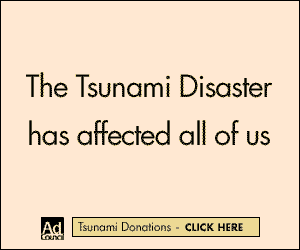About half of the other states are also considering whether to require the vaccine. Of them, both New Mexico and Virginia have passed legislation for mandatory immunization, and their governors are likely to sign those bills into law. North Carolina has not addressed this issue. We're talking about a preventative for cancer here -- what are we waiting for?
The debate involves several issues, including public health science, personal rights and the politics of dealing with sexually transmitted diseases.
First, the science. As recently as 200 years ago, half of all children died before reaching puberty. Now, thanks to modern public health programs, including mandatory childhood immunizations, almost all children can expect to live to old age. Studies show that only about three-fourths of children are immunized on schedule with early childhood vaccines. Mandating vaccination before enrollment in the public school system is the best way to ensure vaccination against many highly communicable diseases. Mandates guarantee high rates of compliance and, because North Carolina will pay for required vaccines, make them available to all. These programs have given us enormous benefits. There is no doubt that many readers or their children would not be here today if it were not for mandatory vaccination programs.
HPV is extremely common, and about 75 percent of women become infected at some point. Each year in the U.S., HPV infection causes about 10,000 women to develop cervical cancer, ultimately killing about 3,700 of them. The current HPV vaccine (Gardasil from Merck) is active against the most common cancer- and wart-causing strains.
Recent studies estimate that universal Gardasil immunization could ultimately prevent the vast majority of these cases. Not only is HPV immunization effective at preventing cancer, but universal immunization also should save money as well as lives, cost-benefit studies estimate. For all of these reasons, the CDC's Advisory Committee on Immunization Practices, with input from clinicians, research scientists and bioethicists, recommended immunization for all girls at age 11 or 12, that is, before they are sexually active. It also recommends catch-up vaccinations for all girls and young women up to age 26.
Why then is there any debate about adding this vaccine to the required lists? One important factor is that mandatory child-protection programs subordinate parental rights, which is certainly true. But N.C. now has many requirements regarding child welfare, including the use of seat belts and infant safety seats. We also require that blood be taken from newborns for testing for more than 40 metabolic disorders. And, importantly, we require that children be immunized against 10 other diseases before enrolling in school.
All of these regulations provide great benefits at low costs, and they were adopted without widespread complaint. So why is mandatory HPV immunization so different?
This vaccine is controversial only because it targets an STD. If HPV were transmitted with a sneeze, then no one would object to a mandatory vaccine to prevent a lethal cancer. Many believe that vaccination against an STD will weaken abstinence until marriage programs. This is not so, not any more than mandatory seat belt usage discourages safe driving.
There are many reasons why abstinence until marriage is the best policy for our children. But despite promoting those virtues for centuries, HPV infection remains extremely common. And even someone who has lived a chaste life can become infected on her wedding night.
The question we should ask ourselves is: Should our daughters be needlessly exposed to risk for cervical cancer? Of course not. Required immunization is the only policy that will protect the most children. North Carolina should add HPV immunization to the required vaccination list now.
(James Curran is a professor in the Department of Biology at Wake Forest University in Winston-Salem.)





